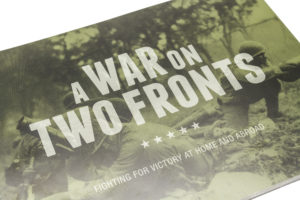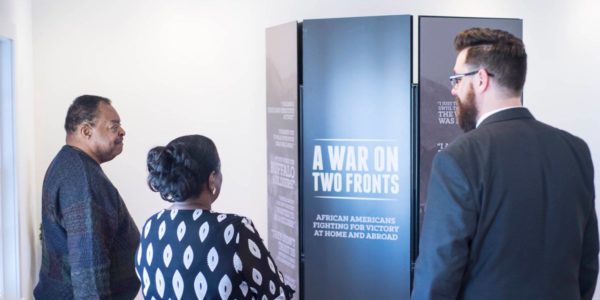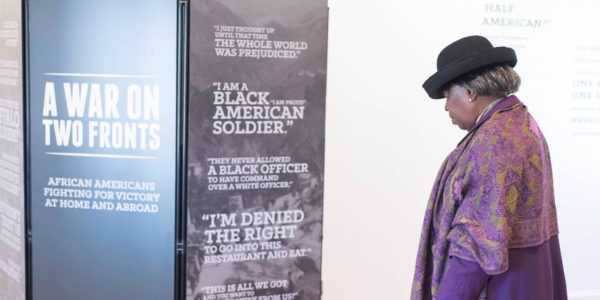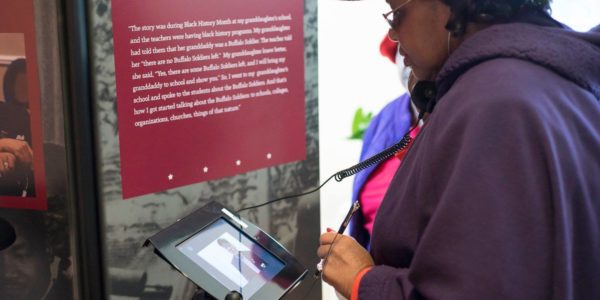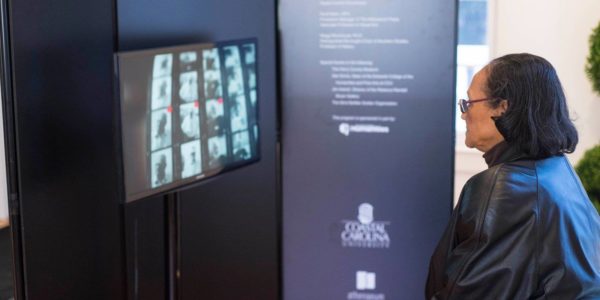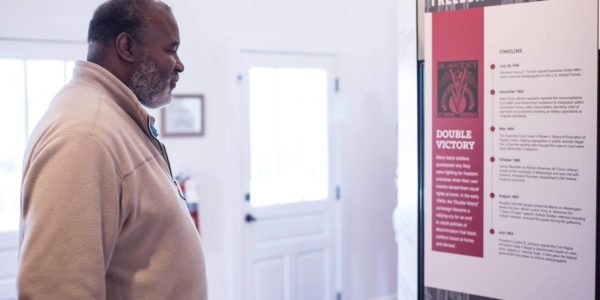A War on Two Fronts

Traveling Exhibit
Book
The War on Two Fronts is a multimedia exhibit that is both physical and virtual. It has an accompanying book, which tells the stories of the discrimination and prejudice imposed on ten African American soldiers who fought during WWII, specifically in the 92nd and 93rd Divisions of the Army. The project also hosts a traveling exhibit that is available to museums, libraries, schools and others throughout the Southeast.
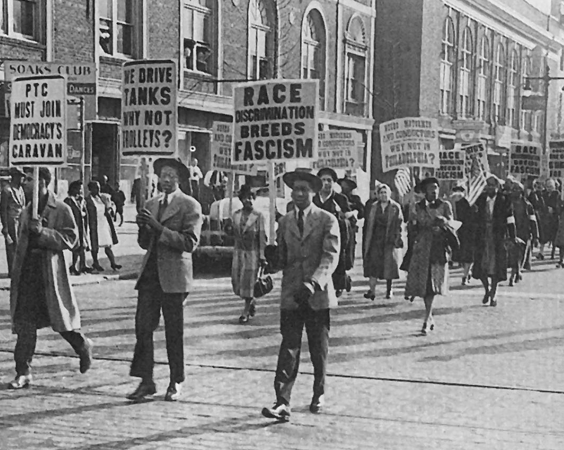
The Project
During the Second World War, African American soldiers fought two against two enemies: the Axis forces along the European and Pacific Fronts, and the discrimination and prejudice imposed on them by white commanding officers on the front lines and back home. Soldiers repeatedly had their weapons taken away from them in the field, were banned from officer’s clubs, and were often overlooked for awards or recognition. These injustices formed a second victory that the African American community sought, which was coined a “Double Victory” – a victory for Allied forces, and a victory for racial equality. The struggles and sacrifices of Black soldiers during WWII would change the face of the Civil Rights movement once those soldiers came home.
Traveling Exhibit
A War on Two Fronts Traveling Exhibit provides a unique multimedia exhibit that demonstrates the injustices faced by 1.4 million African Americans fighting during World War II, and makes a crucial addition to a less-heard story of the Greatest Generation. Visitors will have the ability to interact with the exhibit by leaving letters to Veterans, which offers the ability to display narratives of soldiers from their local community alongside the traveling exhibit.
Exhibition Details
- Contents
- 21 printed display panels (~22 x 84” each) on 5 modular wall sets
- 2 display tables (24” x 20” x 36” each)
- 3 kiosk stands with phone ear piece and attachable stylus
- 1 32” LED Display with stand and video
- Fee: $2,500 per 12-week booking (inclusive of shipping)
Tour
Contact Cali Duncan at 843-349-5099 or athenaeumpress@coastal.edu for information on exhibit content or scheduling.
- January - March 2017: Bertha Lee Strickland Museum (Seneca, SC)
- March - May 2017: Bertha Lee Strickland Museum (Seneca, SC)
- February 2018 - April 2018: The Museum and Railroad Historical Center (Greenwood, SC)
- October - November 2018: SC Humanities Luncheon (Columbia, SC) and Kimbel Library, Coastal Carolina University (Conway, SC)
- November 2019: Kimbel Library, Coastal Carolina University (Conway, SC)
- December 2019 - February 2020: The South Carolina State Library (Columbia, SC)
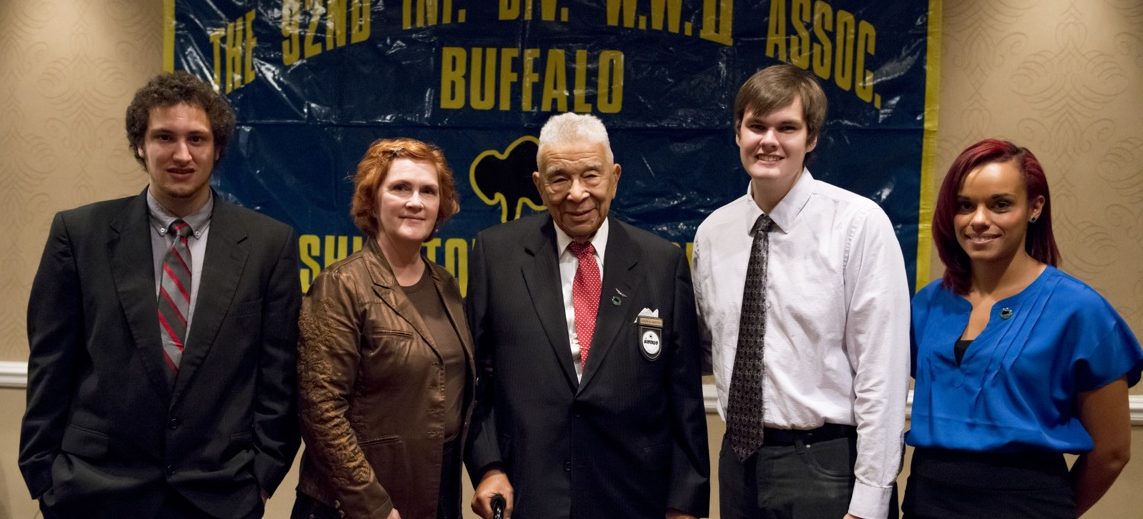
Acknowledgements
We'd like to thank the 1.4 million African American men and women that served during WWII, showing bravery in the face of discrimination and fascism. We would especially like to thank the 60 interviewees from Maggi Morehouse's book project Fighting in a Jim Crow Army, whose interviews are now archived at the Library of Congress. Thank you to Michael Moore, for reading the letters of his father, and to the members of his 92nd Buffalo Soldier organization.
Student Contributors
- Derek Berthiaume, History
- Erica Burkett, Design
- Theresa Calabrese, Design
- Joseph Churillo, History
- Emily Englehart, Design
- Leann Ford, History
- Amanda Hamilton, History
- Lindsay Hickman, English + History
- Amy J. E. MacKenzie, Graduate English
- Nicklaus McKinney, Film + History
- Gabriel Miller, English
- Michael Mistler, History
- Steven Sargent, History + Digital
- Deanna Washington, Communications
Faculty Advisors
- Maggi Morehouse, Professor of History
- Alli Crandell, Digital Content Coordinator
- Scott Mann, Design and Production Manager, The Athenaeum Press, and Associate Professor of Visual Arts
- Jennifer Boyle, Digital Manager, The Athenaeum Press, and Professor of English and New Media
Support

This project was supported by the SC Humanities Mini-Grant in 2013. We are grateful for their support.


